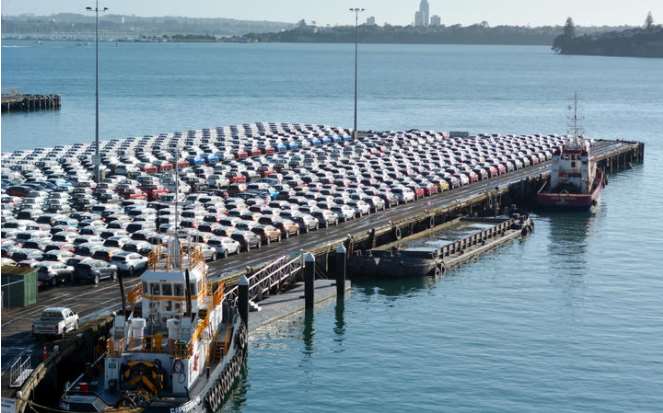The government's clean car import standard requires importers of new and used cars to meet an annual carbon emission standard. File photo. Photo: 123RF
Critics are calling the government's imported vehicles emissions target impossible to meet, with penalties that will cost importers millions and drive up prices for consumers.
The government's clean car import standard requires importers of new and used cars to meet an annual carbon emission standard.
Vehicles that emit above the standard can still be brought in but they must be offset by cleaner cars, with importers to pay penalties if, over a year, their fleet averages out above the standard.
Motor Industry Association chief executive David Crawford said importers faced having to reduce emissions by 40 percent over five years - from 171 grams of CO2 per kilometre to 105 grams by 2025.
He said the government's timeline was impossible to meet and the industry was dismayed.
"Gutted I think is probably the best word.
"We support the need for for a fuel economy standard but we just don't think it's possible to achieve it so quickly.
"No one else in the world has."
Crawford said manufacturers had long lead-in times, and it took time to convert vehicles to right-hand drive. He said if the industry had a couple more years they could meet, or exceed, the targets.
He said some distributors could end up paying millions of dollars in penalties, and consumers would foot the bill.
"The people who are going to find it more challenging are those that genuinely need bigger and heavier emitting vehicles such as farmers and tradies and builders who need the utes and the vans to do hard duty work."
Toyota New Zealand chief executive Neeraj Lala said in principle the industry backed fuel economy standards.
He said the target discussed with the government in its previous term was more manageable, and the new one has him worried.
"105 grams scares me, and the penalties are significant, which ultimately would get passed to consumers.
"Some companies may decide that it's just not feasible to operate here."
Transport Minister Michael Wood said New Zealand has one of the dirtiest fleets in the world, and is one of only two countries in the OECD without a standard.
He made no apology for the speed of the changes.
"We can't let the fact that we have, frankly as a country, dragged our heels on this for a long time - our emissions are about 60 percent higher than the average European country per vehicle - we can't let that now blunt our sense of ambition."
Wood said allowances would be made for vans, utes and light trucks.
The Motor Industry Association and Toyota want the government to look again at a consumer subsidy scheme for low emissions vehicles after its first attempt - known as its "feebate" scheme - was blocked by coalition partner New Zealand First.
Wood said they were working on it.
"Cabinet has also agreed to do work on what an accompanying incentive scheme might look like to support Kiwis to buy cleaner cars - whether it's small cleaner vehicles, hybrids or electrics.
"So I confirmed that [yesterday] as part of this announcement. We've got some ongoing policy work that's going on there and I hope to be able to make announcements in that area in the coming months."
Wood said transport made up 47-percent of the country's CO2 emissions and it had to do everything it could to meet the country's Paris commitments.
The new standard will begin next year.
- This story originally appeared on RNZ





